Want to be a Chopper Mechanic?

A regular question from our readers is,"I love motorcycles, and would like to become a professional mechanic. How do I become one?"
Another is, "I just finished building my bike, and would like to work in a chop shop someday. How would I get a job like that, and how much money would I make!"
There aren't any absolute answers of course. Not for everybody. But the following story is how one mechanic got where he is, and what it's like in his boots.
Junior's income as a wrench is as wildly variable as the way he lives his life.
His high check was for $450. Low figure was $32.50.
Unpredictable.
But that's the way Junior likes things-he has hung up at least three steady careers, and refuses to think about working as a mechanic in a straight shop.
So, six days a week, from "about" noon to "about" six p.m., he's the main mechanic at B&O Motorcycle Consultants, Long Beach, California.
That "about" figure is one explanation for his veering income. Another is his built-in snobbery.
Junior, in a shop and subculture that's partial to any bike, so long as it's 74 inches or more, is a Sportster freak. Not just a Sporty freak because he owns a couple, but because every now and then, Junior refuses to work on anything but Sportsters.
Weeks like that account for the $32.50 paychecks.
That's the way he likes it. From his seaweed-scraggly hair and beard, to the tip of his worn-out engineer boots, with one toe sticking out the end, Junior wants nothing to do with a life that gives him any chance to plan ahead.

He hung that up a long time ago.
Junior's real name doesn't matter.
He's happy with just the nickname, or the initials J.R. The name those initials stand for are part of what he hung up.
Junior's parents are upper middle class East Coast citizens. Junior grew up on a farm, where he picked up welding.
His parents wanted him to go to college. Junior didn't even much want to go to high school. So he spent most of his time partying.
No grades, so college looked dim.
Until somebody remembered Junior's uncle, a power at the prestigious Ivy League college, Cornell.
Family pressure worked two ways—on the uncle and on Junior. A little reluctantly, Junior packed and headed for the dorms.
"One semester later," he recalled," I was out on the streets. I got kicked out because of lousy grades, and I got lousy grades because I drank too much.
Junior had been putting a Triumph Bonneville since high school. And he tentatively started looking at the insides of his bike. "I've never been able to let anyone work on my bikes."
After Cornell came out on top of the Ivy League vs. Biker mini-war, Junior decided to join the Navy "What the hell, I didn't have anything else to do."
The Navy trained him as a sonar technician, and assigned him to a ship docked in Long Beach, California. Junior brought his Triumph with him.
Off duty, J.R. helled around the bars of the Navy town, trying to stay well clear of blue uniforms. He met and started partying with Tom Burke, now his boss, but then employed at Douglas Aviation.
Several things happened quickly: Junior's ship got ordered to the Nam, and Junior got rid of his Triumph. He sent the money to Burke, with instructions to build him a 74 for when he got out. Burke did.
But: "The bike got stolen just about the time I figure I was sitting two miles off the coast of Nam."
When J.R. came back, the second thing he did after he was discharged was buy a Sportster, and then he took back up partying.
He also decided to pick up a new skill. Wheelies.
While Junior was sitting in the hospital, waiting for the doctors to finish steel-pinning his leg back together after a particularly high-class wheelie-over-backwards, Burke decided to open his own motorcycle
He offered Junior a job.
Chop shop, or straight motorcycle shop, the arrangement was pretty characteristic of the kind of wrenching job mostly open in the motorcycle field.
Junior provided his own tools. Burke provided parts and a place to work. Junior got 50 percent of the labor bill assessed by Burke. Most bike shops work on a per-hour rate. Burke set his shop up two ways-either on a flat rate, or on an hourly basis. The hourly ticket is ten bucks, and is applied to mostly custom work -welding, raking, or building a part.
Most of the mechanicing Burke flat-rates. So much for a head job, so much for a lower end, and so forth.
And so J.R. had himself a job. Not with any book training, but Junior feels that "practical experience is better than almost anything else."
Rebuilding his second Sportster provided Junior with a lot more practical knowledge. And the customers started rolling in.
A couple of them beat Junior to work every now and then. The shop opens around ten in the morning and Junior rolls in around noon-" like a job where I don't have to get up at eight in the morning. Here, I come on when I want to, and leave when I want to."
Coming in can be anything from a quiet walking in the door to a roaring burnout through the center of the shop. Depending on how beery the previous night's work was.
This particular morning, the patch of rubber was only five feet wide. Mouse, B&O's second wrench, was already at work tuning a customer's Triumph. Junior stopped long enough to hang over Mouses shoulder and make a comment about anyone who rides British iron, and then started to work.
The first job was a piece of shop work-tearing down a 92-inch Sportster engine. Junior got to work. Not that he was feeling ambitious, but he had a hope that a few parts from the engine would fit on his own street-drag 75-incher.
There was a story to the engine. Seems that one of Burke's old painters, Dick Fool, had emigrated to Oklahoma City. One of Dick's customers had wanted a go-fast Sporty. The result was an S&S-wheeled, Dytch-cylindered monster.
After a few runs, Fool's friend had decided that 92 inches was more than too much for him. He offered to trade the built engine for a stock unit. Fool called Burke, on the semi-underground circuit that keeps chop builders cross-country in close touch.
Burke agreed to the trade, snickering slightly.
In due course, the big-incher arrived, and Junior, slavering slightly, started tearing it down.
According to what Burke had been told over the phone, the engine didn't have much wrong with it. One look at the wheels, and Junior disagreed-they d spun and torn hell out of themselves, the crank pin and the keyway.
One trip to nearby Burkhardt Engineering, and super-builder Paul Burkhardt verified the mill was pretty much junk.
Junior sighed, put everything in a box for Burke to worry about (since Tom hadn't shipped the stock engine back yet, there wasn't any great hassle),and started looking for the rent-work.

The top work order was for a guy who wanted an axle for his Sportster. Junior dug around in the back of the shop, and found a length of hardened steel. It was lathed up, and cut to shape. Junior threaded the ends, and set the item aside for pickup.
That was eight bucks.
The next item was a little more elaborate-a customer wanted a BSA frame raked. Junior sat and stared at the rusty assemblage of metal for a few minutes, then lit off the torch. He torched carefully up from the bottom of the steering head, almost to the top tube. Then heated the top, and called for Mouse.
Mouse held everything steady, and the head was bent out to the new angle. Ten feet of stock went through the head, and Junior walked back to make sure things were straight. A little tweaking lined everything up. and Junior ground the area smooth. Some more scrap plate was cut and ground to shape for gusset plates, and the job was finished up.
Twenty seven dollars.
A phone call broke his work. Somebody was calling with troubles. B&O had built the engine for his new bike, and he couldn't get it started.
J.R. told him to bring it on down.
Burke was out parts-chasing, so J.R. had to wait on some parts customers. He sold one guy a set of Harley wings, and another a chrome primary cover for his Triumph.
He had just about time enough to finish up the BSA rake when a truck pulled in the back alley. Anew Shovelhead chopper sat in the back. Three bikers climbed out–clubbers who weren't wearing their colors. That was the bike that wouldn't start.
Junior went out and kicked for a while, with no joy. Burke got back to the shop, and helped with advice. They finally had the trouble narrowed down-either the distributor had went, or else the coils were gone away. The two scrounged around for half an hour, and found a used unt in pretty good shape. That went on the bike. No Start.
Burke pulled the coil off his show bike, and connected it to the shovel-head. No start.
That made it a little harder. the tin of then step-by-steped through a complete tuneup, on the off chance something had been set wrong.
The pushrods had been adjusted too tight. Loosened down, the bike fired immediately. The patch of bikers left happily.
The whole incident took about an hour. No income for Junior.
Two frames that needed work had to be sandblasted first. So Junior had to sit and look at them. Junior's lifestyle, pretty much against his will, is changing.
And the biggest cause of that change is his drag bike. The drag Sportster displaces 75 inches. It's been up a month, and so far has gotten as far as a 12.32 quarter in the dialing in. Junior figures for eventual times in the 11s.

But that costs money. The bike is paid for-but J.R. let the rent and payments on his other Sporty slip during the building. Debt makes a straighter job look more attractive-J.R's been thinking wistfully about the minimum guaranteed salary of the local Harley agency.
So far, all he's done is talk about it. But the drag bike has put him in the middle-either a straight, time clock punching job, with more money, or working and living his own way. For less bucks.
Thinking about it, J.R. casually pulled his only other job of the day -a basic tune on a Super Glide.
The five o'clock stream of traffic on the street outside told him it was time to go. He'd made arrangements to meet a couple of friends at a local beer bar later.
He kicked his bike through, and swung out into traffic, thinking about that wildly variable lifestyle, and the variable paycheck that went with it.
All he knew for sure was that he'd found the beginnings of a career as a wrench.
The problem was where to take it from there.
By Chris Bunch - Choppers Magazine July 1973
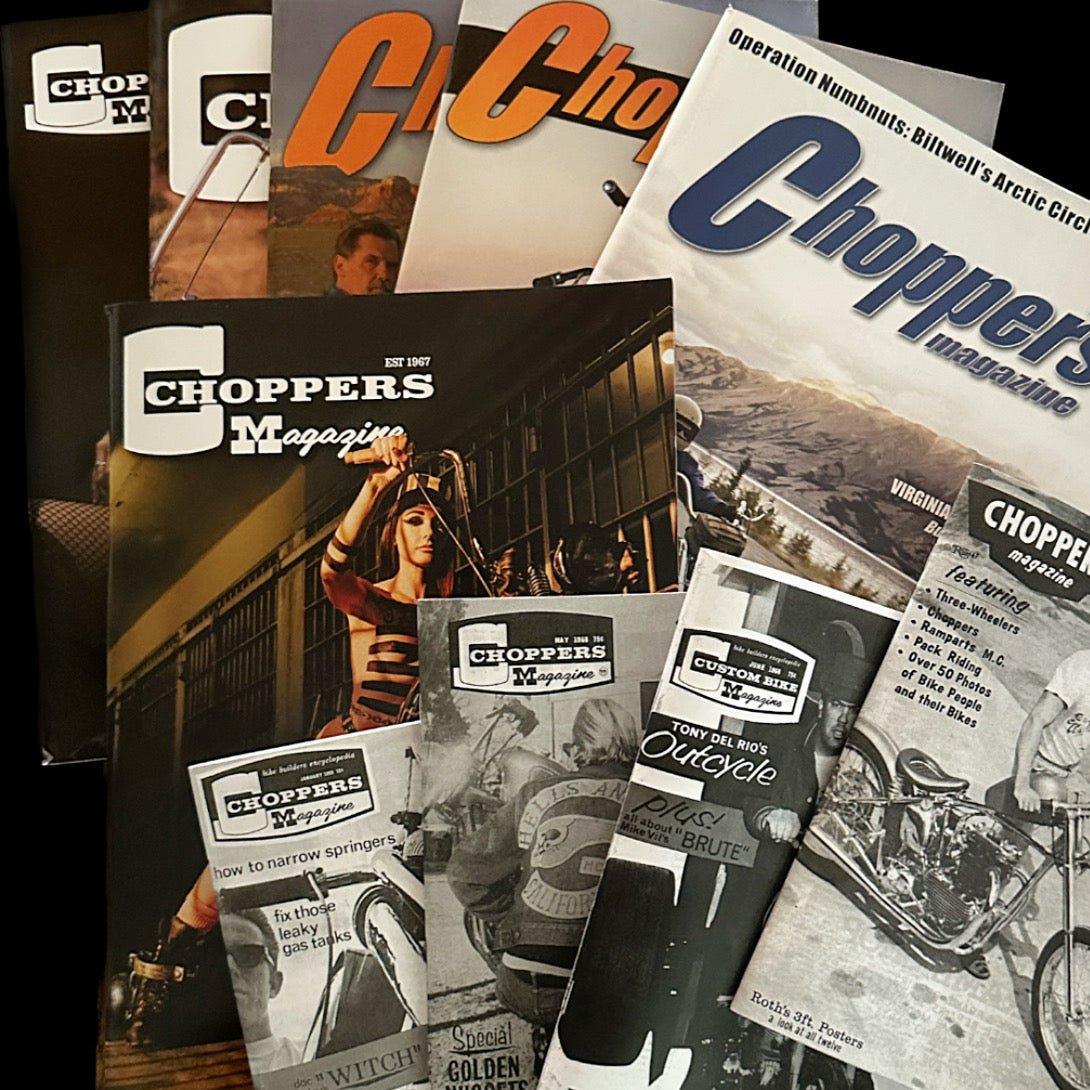
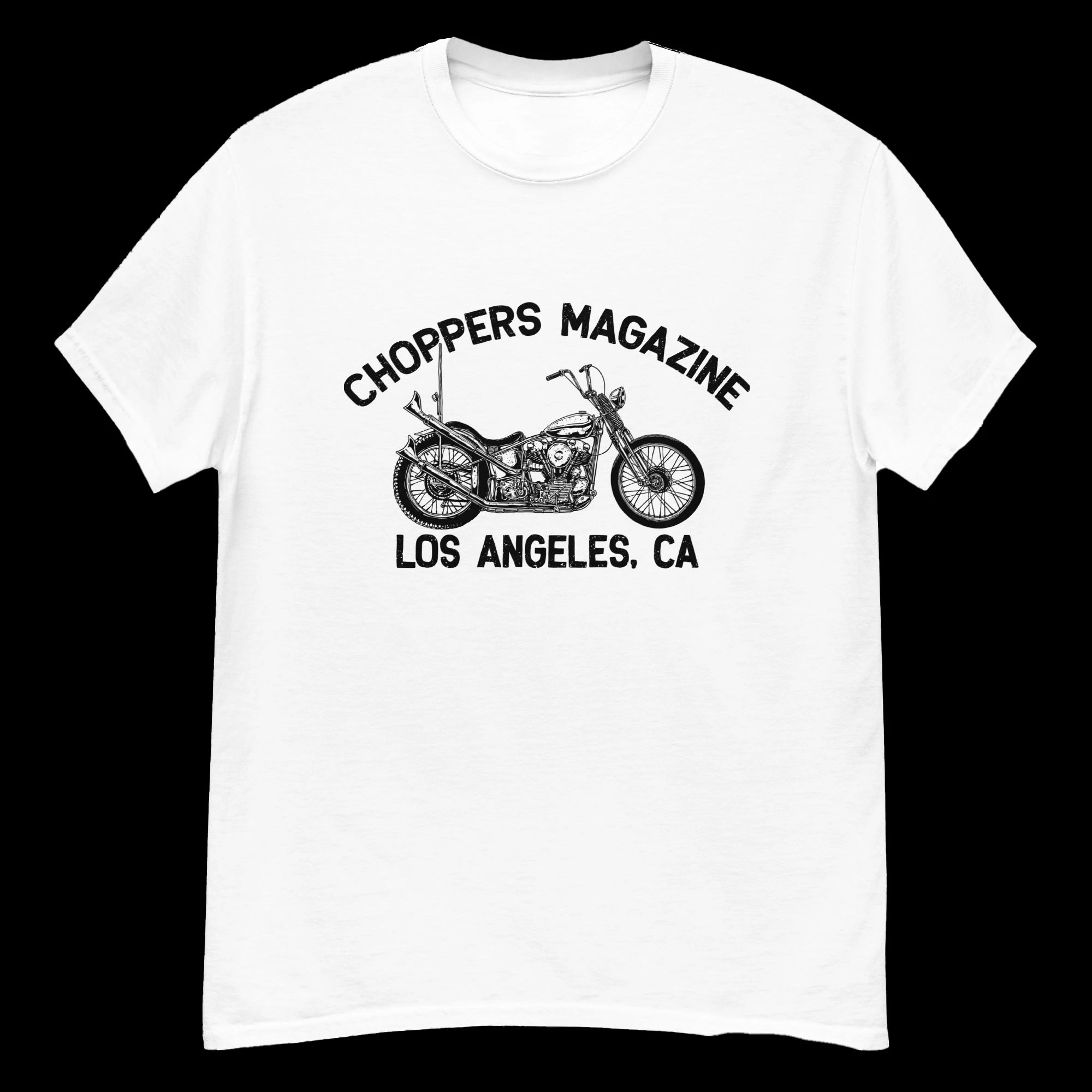

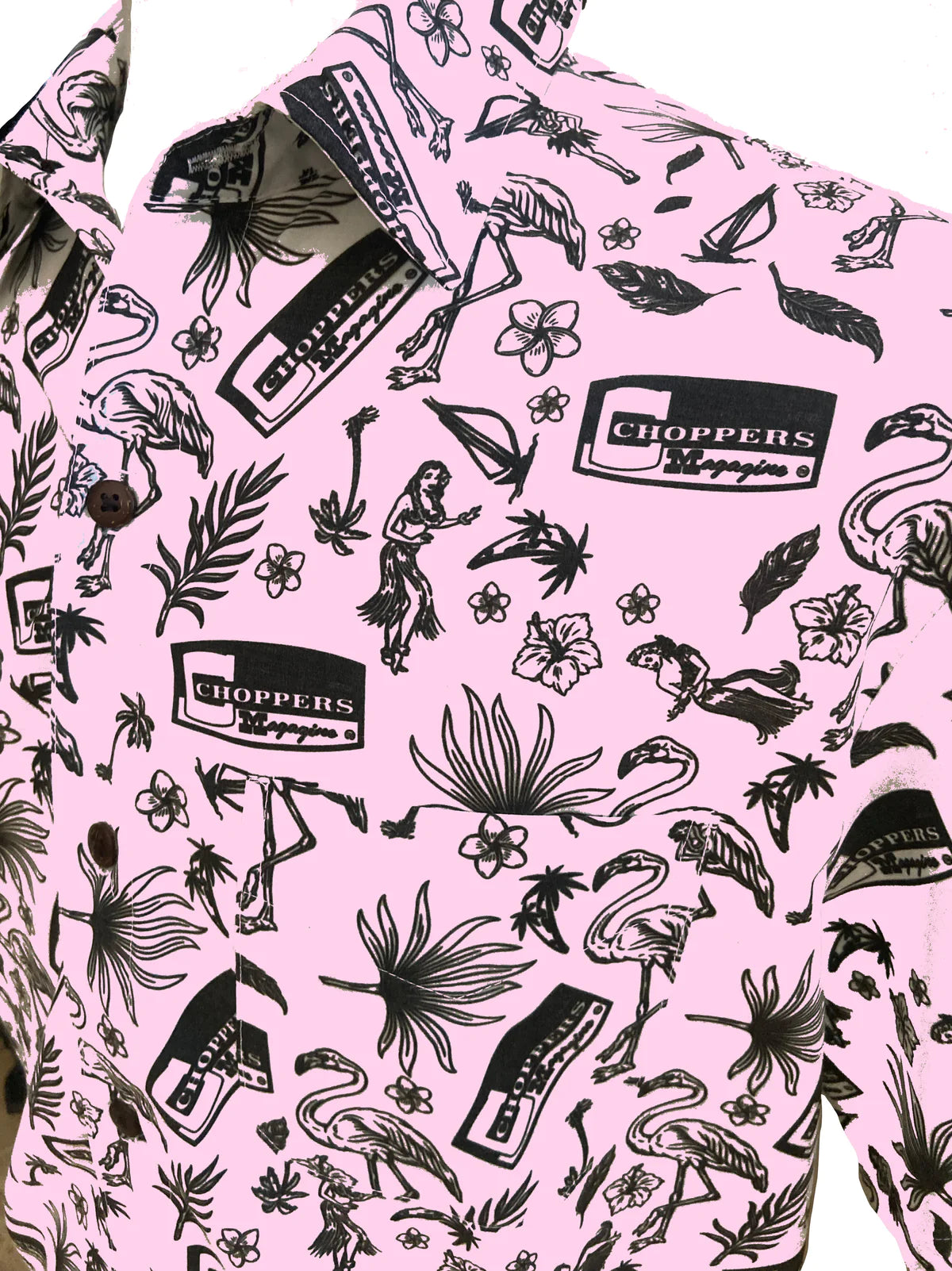
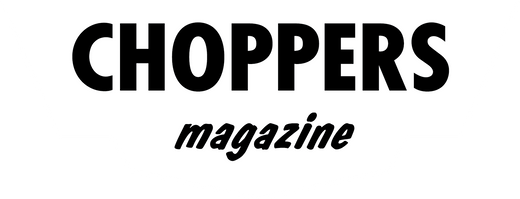


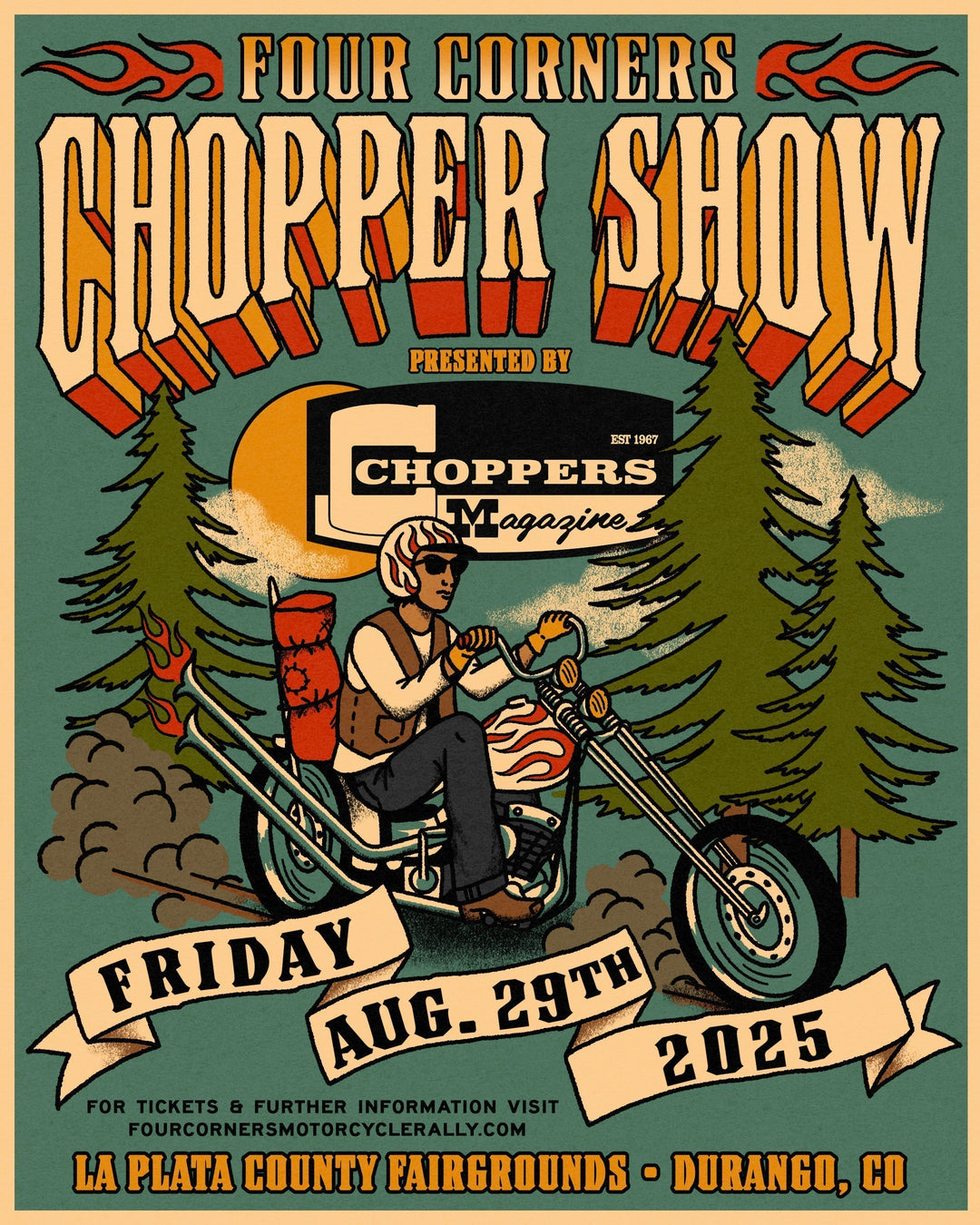
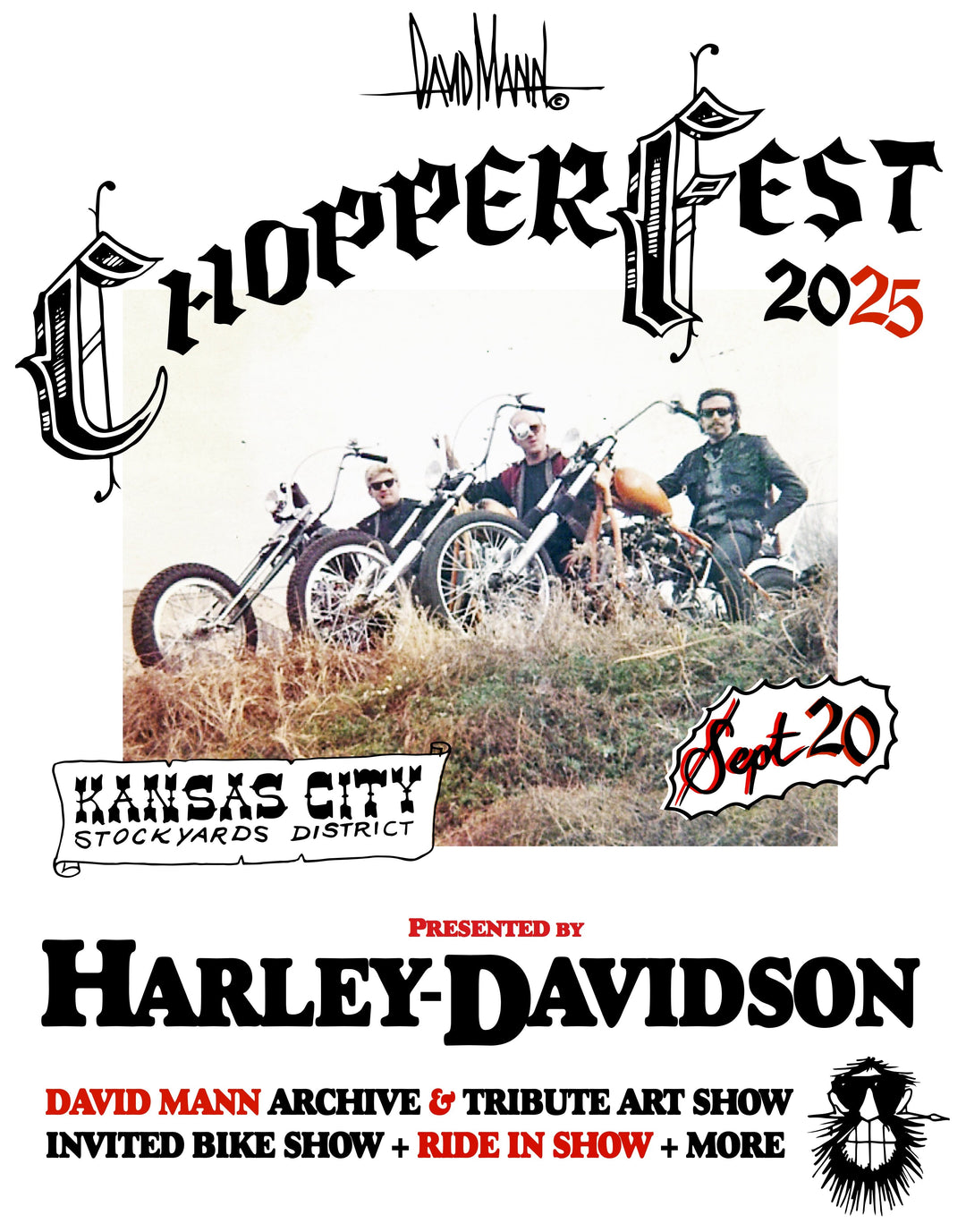
Spent many a night partying in that shop
Along side Burke and his old lady, Ouida.
If those walls could talk.
Good times, good friends…,so long ago.
Leave a comment